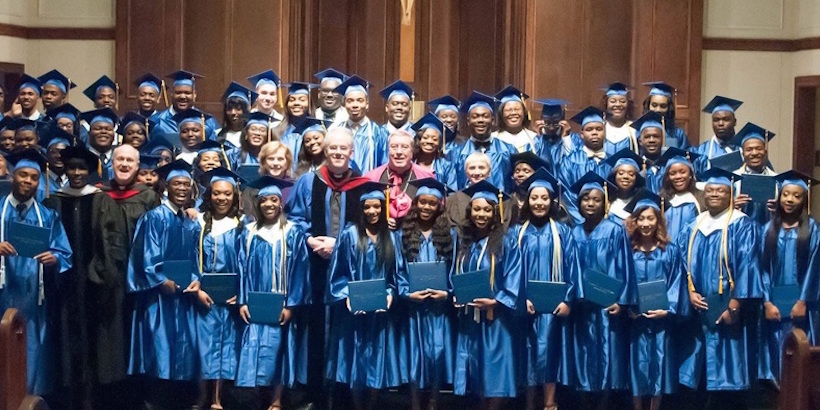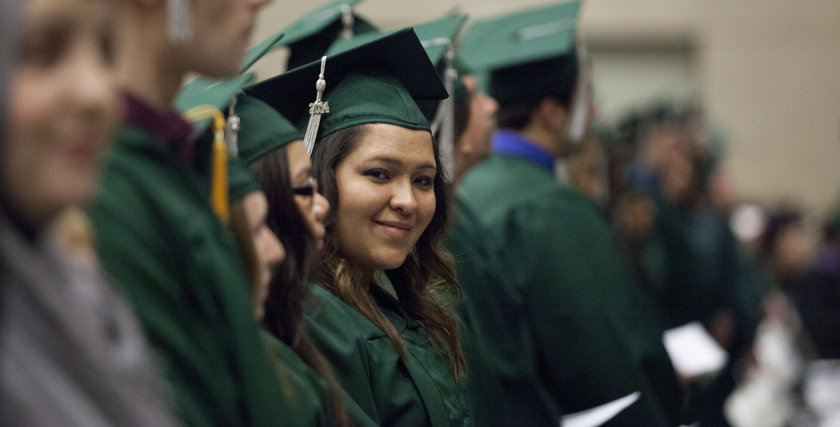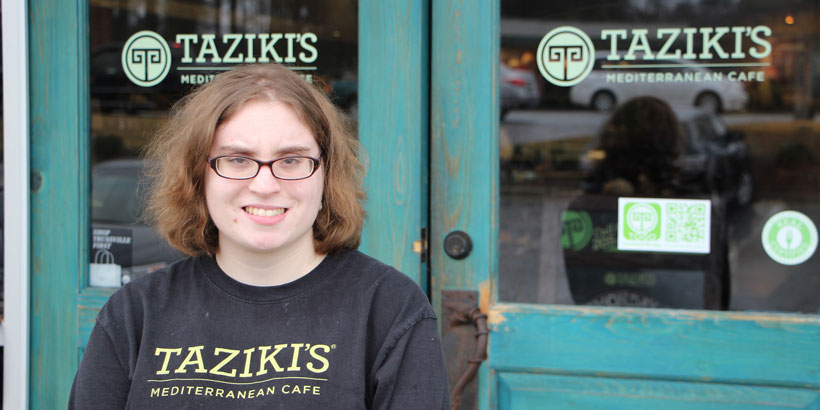
BIRMINGHAM, Ala. — Holy Family Cristo Rey High School is an Alabama success story. Located in Ensley, which was described by school work study director Kirk Mitchell as being ridden by poverty and crime, the school offers an outlet to success for disadvantaged children with serious obstacles to overcome.
“A hundred percent of our graduates have been accepted into college. And the vast majority of those graduates receive scholarship offers as a part of our college counseling process,” Kirk told WBHM. “What we have going on at Holy Family Cristo Rey is really a solution. And we’re providing a way for students to live a better life.”
So how exactly does a small Catholic school in the inner-city generate such positive outcomes for its students? The answer lies in the institution’s desire, curriculum, and unique funding model.
Desire
At Holy Family, teachers do not subject their students to what one U.S. president once described as “the soft bigotry of low expectations.” In fact, the do quite the opposite. They do everything in their power to ensure that each student succeeds, despite home and past behavioral issues.
One student, Kalyn O’Neal, told WBHM’s Dan Carsen about the difference in attitudes of her public school teachers and her private instructors at Holy Family.
“Our teachers were telling us, ‘You’re just going to be a statistic. You’re going to be pregnant before you leave high school. You, your brothers aren’t going to make it out — they’re going to be drug dealers.’ So I would come home crying every day because … I want to be great,” she said.
But that was not the case for Kalyn at her new school.
“It’s like they actually care about you,” she said. “They want you to be great. They’re going to push you. You can’t fail. If you have a D, you can’t leave the school. You’re going to be in tutoring. So, they … they care. And I never had that anywhere else.”
Teachers pass out their cell phone numbers to students, help students with gas money to get to school, and offer after-hours tutoring.
“I see what these teachers can do,” said Cameron Taylor, another student. “I’m seeing that the counselor, or the principal, and everybody just really care. They really care about your future, and I started to care about my future more ever since I got here. So that’s why I really do love this school so much.
Curriculum
Holy Family teaches the core subjects just like any other school. But unlike most public options, the catholic institution integrates a work-study program into all of its students’ schedules.
One or two days a week, students work at a business or non-profit in the Birmingham area to learn and make connections and establish future jobs and internships. Students have worked at dozens of local businesses, with some working at places such as Regions Bank, St. Vincent’s Hospital, and Vulcan Materials Company.
“[It] shows you that, even though I’m young, I can still be mature enough to work,” Cameron said.
Funding Model
In order to ensure maximum success to students at minimal cost to families, the Ensley school draws revenue from three different sources.
The first source is in the form of direct tuition payments from students’ families. Depending on family size and income, tuition can cost from $200 to $1,200 a year. This relatively low charge only makes up 10 percent of the school’s whole income.
45 percent of Holy Family’s funding comes from the school’s work-study program. Director Kirk Mitchell noted that this part of the model is what makes it so successful in a disadvantaged environment. The money the students would normally take home from their internship is instead paid to the school to cover the cost of their own education.
The last 45 percent of the school’s funds come from philanthropic donations. That funding, again, helps subsidize the cost for the parents who want nothing more that for their children to have a better life.












